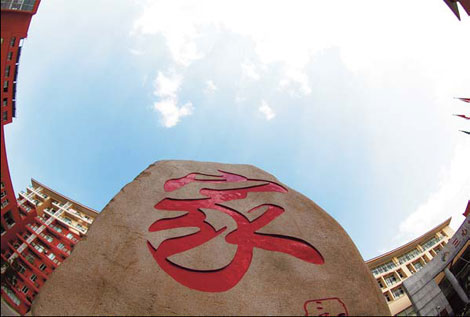Nursing the business opportunities of an aging nation
Updated: 2011-12-05 07:56
By Diao Ying (China Daily)
|
|||||||||
|
A nursing home in Wenling city, Zhejiang province. More than one-tenth of the Chinese population is now aged 60 or older. [Jiang Yongbing / For China Daily] |
BEIJING - China is an aging society and this simple fact can be seen in everyday life. Walk into any Qingfeng Baozi, a popular chain of steamed bun restaurants in Beijing, and there are tables specially reserved for the elderly. Shop at Daoxiangcun, a chain famous for traditional snacks, and you'll see the elderly lining up. In both places, there are signs saying the premises welcome "coupons for the old".
Underpinning this is a government initiative to tackle the problem of an aging society. According to official data, more than one-tenth of the population is now aged 60 or older. The proportion in Beijing is even higher - in some districts of the city one in five, or 20 percent, of the residents are aged 60 or older.
As part of the solution, Beijing residents aged 80 or above can receive a monthly coupon from the government worth 100 yuan ($15.6). They can use the coupon at a number of designated restaurants and shops, but that's far from sufficient. "The problem is that many old people are not even visible on the streets," said Zhang Ying, who has worked with the elderly for seven years. "Many of them are too sick to leave their homes."
Unlike in developed economies where senior citizens may move to specially designed complexes, most elderly people in China have to remain at home. Growing old in the bosom of one's family is the traditional way, and economic and social reasons mean that it will stay like that for years to come, according to Zhang. Special institutions for the elderly do exist in China, but are not common. The social safety network has yet to be completed. More importantly, the family is the core unit in traditional Chinese society. For many people, taking care of their aging parents and ensuring that their twilight years are happy remains the prime responsibility.
While some see this tradition as a problem, others have discovered opportunities. Wang Yanni, who is in her early 30s, recognized the business potential when she saw people of her father's generation staying at home, lonely and infirm. Wang, who used to work in the financial industry, researched the business model while studying for an MBA in France.
"Aging at home is China's answer to the problem," said Wang, who started her own business in 2009. Her company, Pinetree Senior Care Services Co Ltd, provides home-based services for the elderly. The main target group is those who have difficulty taking care of themselves, such as the disabled, or those who have been discharged from hospital but still require specialist care. The company hires nurses to care for the elderly at home on request. Times and prices are flexible and Pinetree only employs trained nurses.
The company has filled a gap in the market. Prior to its establishment, people didn't have much choice: they either sent senior citizens to hospital, or hired someone to care for them at home. Neither was an ideal solution. Hospitals are often expensive and crowded and some "professional" carers are not always professional. Caring for elderly relatives can become a burden on busy, working family members - and it is common in China for all family members to work full time.
"What they need is something in between: professional services as and when required," said Zhang, who is employed by Pinetree.
A rapid response to customer requirements and availability of staff at all hours is essential to the business model. Nurses are dispatched from Pinetree's two nondescript service units in Beijing, strategically located in the Hepingjie and Dongzhimen districts in the heart of the city, allowing easy access to patients' homes. "It is like professional care for the old, 100 meters from home," she said.
The business is expanding rapidly. It currently serves more than 20,000 senior citizens in Beijing, compared with 200 a couple of years ago. Wang is also planning to expand to other first-tier Chinese cities in the next few years. With the right business model, the problem of an aging society can provide good business opportunities, said Zhang.
China Daily












